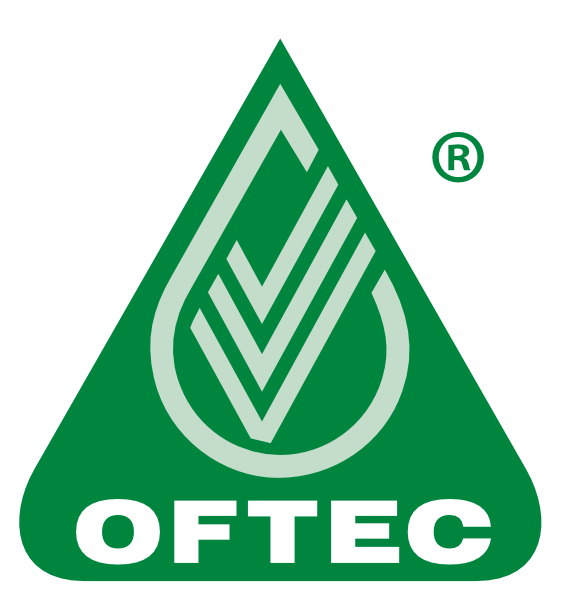OFTEC's trade association at work
OFTEC supports its members in a wide variety of ways. On this page you can find out more about some key areas of our work on behalf of the liquid fuel heating sector.
Some recent examples of our activities
- Influencing technical legislation
- Decarbonising heating
- Working in Europe
- Providing a competent workforce
- Promoting the registration of technicians
Influencing technical legislation
Regulations around the design and use of heating equipment are vital to our industry. We work closely with our members and a wide range of agencies to set and review appropriate standards for liquid fuel heating equipment manufactures, and installation and servicing technicians. Our Main Technical Group meets regularly and provides a vital forum for technical discussion, which includes both up and coming changes as well as informing on current matters that affect the sector.
On behalf of our members we respond to all government and industry consultations about liquid fuel heating and cooking that relate to the UK, its dependant territories, and the Republic of Ireland. Also, through our relationship with Eurofuel, we respond to European Commission consultations on heating (see below).
We have close working relationships with other industry groups such as the UK and Ireland Fuel Distributors Association (UKIFDA), Energy Utilities Alliance (EUA) and Heating and Hotwater Council (HHIC). We also work closely with the UK government, the government’s of the UK’s devolved nations, and industry bodies, including DESNZ, the Environment Agency, Defra, BSI, HSE, MHCLG, and Northern Ireland Department for the Economy. In the Republic of Ireland, we work closely with SEAI and the Department of Communications, Climate Action and Environment.
Decarbonising heating
Significant change is coming to the heat market that will affect every aspect of the sector. In the UK, there is a legal duty to achieve Net Zero emissions by 2050 and, while the responsibility for achieving this rests in Westminster, significant devolved powers for heating policy have been given to the governments in Scotland, Wales and Northern Ireland. In the Republic of Ireland, a Climate Action Plan aims to deliver 30% emissions reduction by 2030 and to develop a roadmap to carbon neutrality by 2050.
To achieve these goals, fossil fuels such as gas, oil and coal will need to be replaced with low carbon fuels or technologies. Alongside the transition to low carbon fuels, huge improvements are also needed to the power grid and home energy efficiency is essential for energy preservation and lowering running costs. A new or reskilled workforce will also be needed. These challenges will require enormous investment and significant policy interventions from government. The UK Labour government has announced the creation of Great British Energy to drive forward work to decarbonise electricity, and a Warm Homes Plan to tackle energy efficiency and the deployment of low carbon heating technologies. Heating strategies have also been published by the UK devolved Nations. However, action needs to be taken quickly, with very significant changes needed by 2030.
OFTEC is committed to supporting that challenge while representing the needs of our members and enabling our industry to flourish in the low carbon future.
We show this commitment by:
- Developing solutions, sharing information and promoting the benefits of liquid fuel heating.
- Representing members at meetings with MPs, ministers, government advisors, and civil servants.
- Participating in formal industry stakeholder groups.
- Coordinating responses to government consultations on behalf of members.
- Undertaking lobbying to influence policy development and wider political thinking.
- Commissioning research to support the future of the liquid fuel industry and influence heat policy.
- Collaborating with other sectors of industry, such as fuel distribution, to ensure the needs of our sector are understood and supported.
- Leading projects to develop low carbon liquid biofuels to replace kerosene.
You can find out more about our strategy by visiting our campaigns page.
Working in Europe
OFTEC Ireland is a member of Eurofuel and we have close relationships with other liquid fuel heating industries across Europe. As well as the Republic of Ireland (RoI), Eurofuel represents trade associations from Austria, Belgium, Finland, France, Germany, Ireland, Luxembourg, Norway and Switzerland. The organisation has a full-time Secretary General based in Brussels and promotes existing and emerging low carbon technologies relating to liquid fuelled heating. Through Eurofuel we share best practices, take advantage of research and development throughout Europe and exchange information with the USA.
We also coordinate the industry’s response to EU regulations where that will have a significant impact of the heat sectors in the RoI and UK. The liquid fuel heating sector in the UK and Ireland uses a different fuel to the rest of Europe (kerosene, rather than gas-oil), so our equipment has some unique design features. We work to ensure that these differences are understood so that proposals from the EU Commission do not adversely affect our local industry.
Providing a competent workforce
Around 100 training centres are members of OFTEC’s trade association, reflecting the vital role they play in ensuring the heating sector has an appropriately skilled workforce. OFTEC supports their work by ensuring that the training courses and assessments they offer meet the needs of industry, working in partnership with colleagues across the heating sector, and with relevant certification bodies holding ISO/IEC 17024 for personal certification, to produce course and assessment materials.
In recent years this has extended beyond OFTEC’s core work on liquid fuel heating. It now includes both solid fuel and heat pump training and assessment, the latter of which is going through the process of UKAS accreditation. OFTEC has also played a coordinating role in enabling training centres to offer government funded heat pump training, which is a vital part of the skilled workforce needed to deliver of the transition to low carbon heating.
Promoting the registration of technicians

Ensuring that heating equipment is installed and maintained correctly is important for both homeowners and manufacturers. In the UK and Ireland, it is a legal requirement that technicians who work on gas-fired appliances hold appropriate registration. However, formalised ‘competent person schemes’ for other heating types (and other building trades) have only been recognised by government in England and Wales and, unlike gas, are not mandatory. Elsewhere, while the benefits to consumers of having properly trained and independently inspected heating technicians should be obvious, the legislators in Scotland, Northern Ireland and Republic of Ireland have chosen not to act.
We have lobbied hard on this issue, making a strong case for officially recognised registration schemes. Despite this, there is still no overarching government recognition for formalised registration in these regions, but we have made some useful progress. For example, the Sustainable Energy Authority of Ireland (SEAI) runs its own registration scheme for grant funded heating installations.
The government’s aspirations to deploy low carbon heating at scale raise important questions about how competence and best practice will be managed. Protecting consumers remains one our top priorities and we will continue to make the case for registration at every opportunity.
Please wait ...

